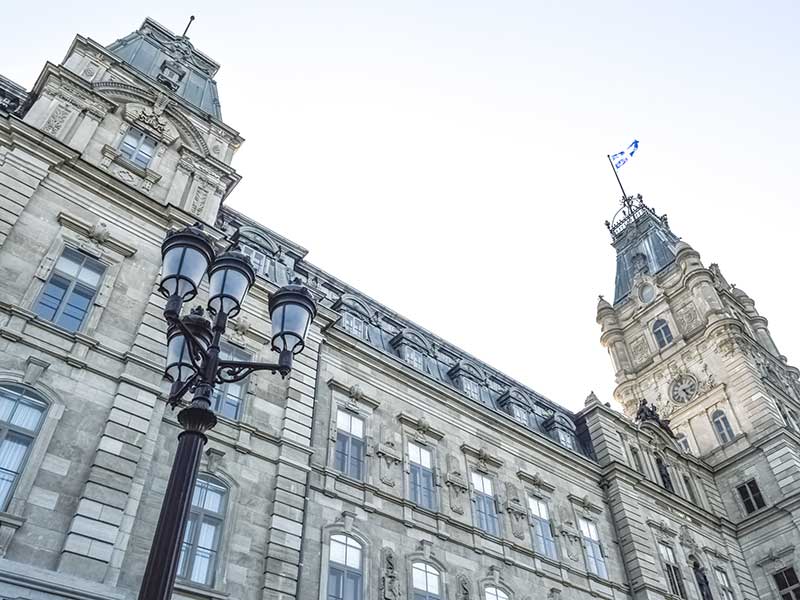
This article appears in the November 2022 issue of Investment Executive. Subscribe to the print edition, read the digital edition or read the articles online.
For Premier François Legault, the Quebec election held on Oct. 3 was about bringing Quebecers together to protect the French language.
He interpreted the landslide win by his Coalition Avenir Québec (CAQ) party as a mandate to seek from Ottawa greater control over the selection of immigrants, with the goal of choosing newcomers who already speak French.
Quebec’s non-francophones, irritated by the CAQ’s Bill 96 — which limits enrolment in English-language colleges and ends services in English for immigrants six months after their arrival — saw Legault’s crusade to protect French as casting them as a threat to Quebec’s French character.
Legault did not reach out to Montreal during his campaign, saying instead that Montrealers were looking down on people in the Quebec City-Lévis region, a new supercity he wants to make in Quebec’s French-speaking second metropolis that would rival Montreal.
The premier associated immigration with violence before backtracking. Accepting more than 50,000 immigrants a year would be “suicidal” for French, Legault said.
The CAQ did not seem to lose votes when its immigration minister claimed, falsely, that 80% of immigrants in Montreal do not work, do not speak French and do not respect “Quebec values.” But the gaffe may have boosted voter turnout in Montreal.
The CAQ base is francophones aged 55 and older outside Montreal, who often have little or no contact with non-francophones.
The CAQ won 90 of Quebec’s 125 seats, dominating all regions but Montreal, where the party won only two of 27 ridings.
The Liberals under Dominique Anglade won 21 ridings, including 16 in Montreal and four in off-island suburbs. The only non-Montreal Liberal seat is Pontiac, an Outaouais riding with a significant number of English-speaking voters.
The Liberals took no seats east of Montreal and did poorly among French-speaking voters.
Québec solidaire won eight Montreal seats, while Parti Québécois leader Paul St-Pierre Plamondon, virtually unknown until this election, took the Camille-Laurin riding in Montreal.
The fledgling Quebec Conservatives under the leadership of Éric Duhaime, a Quebec City shock-radio host, drew support from Quebecers angered by Legault’s measures to contain the Covid-19 pandemic, winning 12.9% of the votes but no seats.
Duhaime campaigned in English in Montreal against Bill 96, but his party only ran second in three Montreal ridings — to Liberals, who won with majorities over 50%.
Legault’s CAQ won 41% of the popular vote, tallying 1.7 million votes — 175,000 more than in 2018.
Québec solidaire was second after the CAQ in the popular vote, with 15.4% and 11 seats. The PQ was third with 14.6%, but only three seats.
The Quebec Liberals were fourth in total votes, at 14.4%, but that was enough to secure 21 seats.
All the opposition parties but the Conservatives, with 1.5% in 2018, won fewer votes in this election.
The Quebec Liberals won 32 seats and more than 1 million votes in 2018. This time, the party that ruled Quebec for 28 years since 1970 (in alternation with the PQ, which was in power for 20 years in that period) won only 591,077 votes.
Before the 2018 election, Legault agreed in writing to enact proportional representation (PR). The CAQ did introduce a bill on PR but, with the focus on Covid, it was abandoned.
PR would still have given the CAQ a majority of 75 seats, with 16 for the Liberals, 14 for Québec solidaire and 10 each for the PQ and Quebec Conservatives.
In this campaign, Legault said only intellectuals want such a change and he would not re-introduce the bill.
Advisor chargebacks are bad for the industry
The CSA is considering a ban on the practice